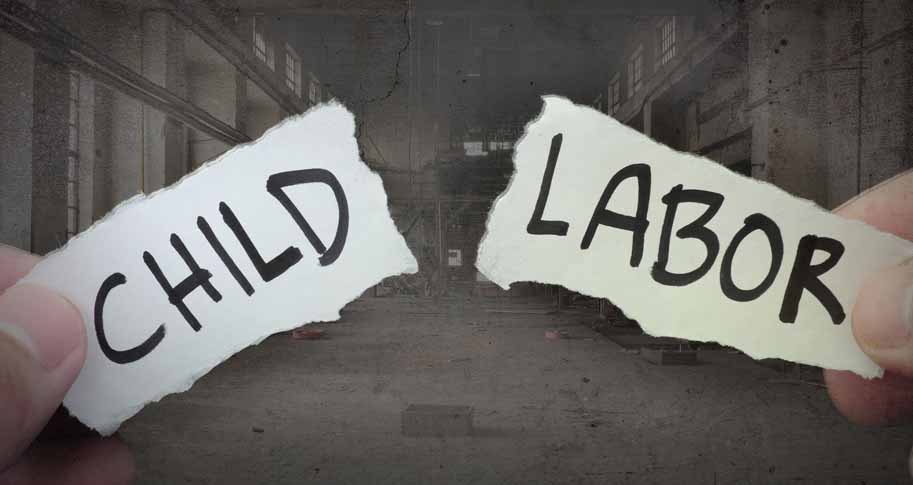
JBS Foods operates globally, and its 85 locations in the United States include a beef processing plant in Grand Island, Neb., and a pork production facility in Worthington, Minn. And like many companies in the food industry, JBS uses an outside company to clean and sanitize its facilities.
In 2022, that outside provider was Packers Sanitation Services, Inc. (PSSI), a Wisconsin-based company that works with more than 725 plants in North America. And earlier this year PSSI paid $1.5 million in civil penalties – not because of violations involving the quality of their services, but because of violations of child labor laws.
Forced labor, and child labor in particular, is not a problem of a bygone era in America’s industrial or agrarian past or something that only occurs in other countries. Not only is it still a problem in the U.S., but it’s a problem that growing.
The PSSI case, which began with investigations into the two JBS facilities and a Turkey Valley Farms plant in Marshall, Minn., eventually found violations at 13 meat processing facilities in eight states that involved at least 102 children ranging in age from 13 to 17. The U.S. Department of Labor found that the children were required to work overnight shifts and often worked with hazardous chemicals while cleaning equipment like back saws, brisket saws and head splitters.
The latest child labor estimates indicate that more than 160 million children (nearly 1 in 10) around the world are involved in child labor. The number in the U.S. was on a downward trend from 2000 to 2015, when it began creeping back up, and there’s been a 69% increase in the number of children employed illegally since 2018. In 2022, the Department of Labor found 3,876 minors employed in violation of the law, resulting in more than $4.3 million in civil penalties.
It’s an intractable issue that is hard to eradicate, and one where the law alone won’t do the job. It also requires that companies have a strong cultural compass on ethics and compliance and proactively lead on the issue. U.S. Agriculture Secretary Tom Vilsack made that point earlier this month when he called on 18 largest meat and poultry companies to examine their hiring practices and the hiring practices of their suppliers.
“The use of illegal child labor – particularly requiring that children undertake dangerous tasks – is inexcusable,” Vilsack wrote in the letter, “and companies must consider both their legal and moral responsibilities to ensure they and their suppliers, subcontractors, and vendors fully comply with child labor laws.” Vilsack said in the letter.
Avoiding forced labor is one of the six fundamental ethical principles for all businesses, not just those in certain industries, so every company should strive to eliminate it within their employee base and across their supply chains.
But while the federal government is calling for stiffer penalties against violators, some states are passing legislation that puts the onus for protecting minors more squarely on the shoulders of businesses. Arkansas, for instance, recently passed the Youth Hiring Act that eliminated a requirement that children under 16 obtain an employment certificate before they are hired. The certificate documented the child’s age, described the work they will undertake, and gave written consent from the child’s parent or guardian. Removing the administrative state certification now means it’s up to each business to keep records that prove it’s in compliance.
So, what can companies do to safeguard children by ensuring they are proactively addressing this core issue of business ethics?
Define and document. Every business should have clearly documented policies on what types of jobs children over the legal age can do, documented accountability measures for employees who violate the policy, and clear processes for confirming an individual’s age in the hiring process. The documentation confirming age should be securely maintained and easily accessible for review.
Don’t just bark; bite when necessary. The real test of policies comes in the operational follow through, and this is where companies often fall short due to limited resources, time constraints, or a lack of fortitude.
Employment records need to be regularly monitored and audited, and individuals must face stiff penalties for proven violations. The situations and outcomes related to child labor violations should be communicated internally with an eye toward educating and preventing future violations. Without this type of follow-though, the policies have no teeth and an inadvertent message can seep through the organization that the company is all bark and no bite with respect to child labor.
Check the chain. Supply chains present another large risk to companies, but several steps can be taken here as well. Again, it starts with having documented policies and a meaningful mechanism for workers in the supply chain to report violations without retaliation. It also requires strict accountability for suppliers who are found to have either violated policies or retaliated against an individual for reporting a violation. Auditing and monitoring are important, and unannounced audits can be particularly effective.
Partner with the community and other businesses. Companies that want to proactively address child labor issues in their own facilities and in their supply chains can work with governments and non-profits to local schools and other groups that provide after-school programs for children. Such efforts can be enhanced through coalitions of companies that all have operations in a particular area. Avoiding child labor should be a shared goal, not a competitive advantage.
Tell the world. Finally, companies should be transparent about the specific steps they are taking to address child labor. This starts by making the policies accessible on the company’s website, but also by communicating them in facilities, at meetings, and in every other way necessary to reach the appropriate audiences.
Not only are there a growing number of socially conscious consumers but being transparent about child labor prevention steps can build and maintain trust between your company and its stakeholders. Eradicating child labor is one issue that everyone should be able to agree on.






